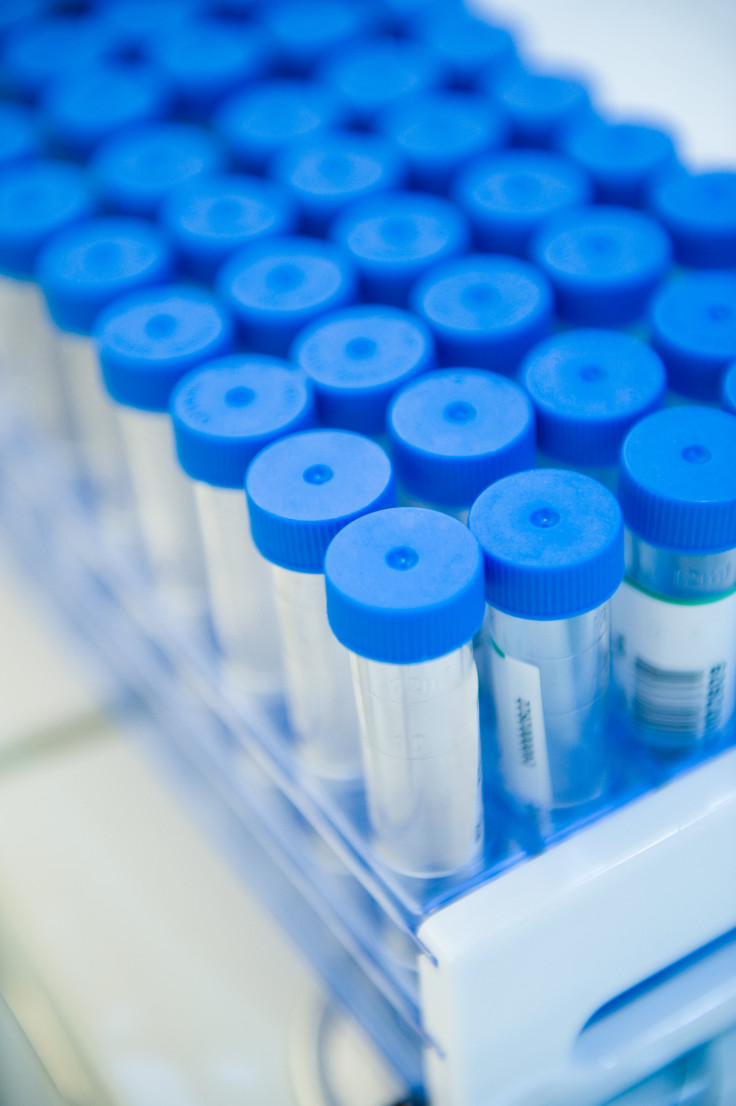Anne Wojcicki, 23andMe Founder, Responds To FDA: ‘We Stand Behind The Data We Return To Customers’

Anne Wojcicki, founder of genetic testing company 23andMe, has responded to a letter from the U.S. Food and Drug Administration (FDA) that pointed out potential issues in the company’s genome testing service.
The FDA highlighted the fact that the company’s lack of regulation could be harmful to its customers, who may make personal health choices based on the genetic information they glean from the test – such as whether they have slow or fast metabolism, or what their chances of getting cancer are. Wojcicki, though she admitted that her company was behind on getting up to speed with FDA regulations, emphasized her belief that the data provided by 23andMe was safe and accurate.
For $99, consumers order a DNA kit online, which is then mailed to them. They spit into a tube and send it back to 23andMe, where DNA is extracted from their saliva and used to detect information about the individual’s health and ancestry. The test, which is called Personal Genome Service (PGS), analyzes the likelihood of a person to be at risk of certain cancers, allergy to gluten, or other disorders. Once a person’s genotype is known, it is compared to published literature to figure out disease risk and trait expression. PGS is not FDA-approved, though 23andMe has been in service since 2007, and its personal genome test kit was named Invention of the Year by Time Magazine in 2008.
In a Nov. 22 letter, the FDA expressed its concerns that people who use the 23andMe test might receive false positives or false negatives, and base their lifestyles and health regimens off of potentially inaccurate — or inaccurately interpreted — information. For example, a person who is told they might have a genetic disposition to a certain disorder, or cancer, might pour their time and money into further unnecessary testing, screening, or medication. “Some of the uses for which PGS is intended are particularly concerning, because of the potential health consequences that could result from false positive or false negative assessments for high-risk indications,” the FDA wrote. The FDA has reportedly attempted to work with 23andMe to ensure that the company complied with regulations, but “even after these many interactions with 23andMe, we still do not have any assurance that the firm has analytically or clinically validated the PGS for its intended uses, which have been expanded from the uses that the firm identified in its submissions.”
In a blog post written on Nov. 26, Anne Wojcicki responded, “It is absolutely critical that our consumers get high quality genetic data that they can trust … We stand behind the data that we return to customers — but we recognize that the FDA needs to be convinced of the quality of our data as well.” Wojcicki states that the company is focused on preventative care, and that it is meant to assist people in making healthier choices based on their genetic predisposition. “This is new territory for both 23andMe and the FDA,” she continued in the blog post. “This makes the regulatory process with the FDA important because the work we are doing with the agency will help lay the groundwork for what other companies in this new industry do in the future.”
There are mixed opinions about the efficacy — and relevance — of 23andMe. Bernard Munos, who took the saliva test along with his entire family, explained on Forbes how many of his genetic results from the test were somewhat confounding to him: the results claimed he did not produce lactase, which means he would be likely to be lactose intolerant. But Munos says he eats cheese nearly every night and has never experienced “the slightest inconvenience.” He writes, “[U]nder our current knowledge, there is often a tenuous relationship, at best, between selected genes and phenotypes. I do not doubt that I have the mutations that make me lactase-deficient … but, in my case, they are irrelevant. Their effects are mitigated by things we do not know or understand, such as other genes or perhaps the microbiome.”
23andMe test results may show that a person’s risk of a disease is two percent compared to one percent in the rest of the population, a difference which “isn’t very meaningful,” Dr. Robert Green, a genetics medicine researcher at Brigham and Women’s Hospital in Boston, told the Wall Street Journal. But Dr. Green does believe that such genetic testing could be helpful in leading people to healthier choices. “There is anecdotal evidence that this is one more way people motivate themselves to do what they ought to do anyway,” he said.
“FDA acted properly in view of 23andMe’s cavalier attitude toward its regulatory obligations and its failure to meet past commitments,” Munos wrote. “However, it would be a setback for science if 23andMe were not allowed to proceed.” 23andMe was given 15 days from the Nov. 22 FDA letter to respond and outline the steps it is taking to address the FDA concerns.



























